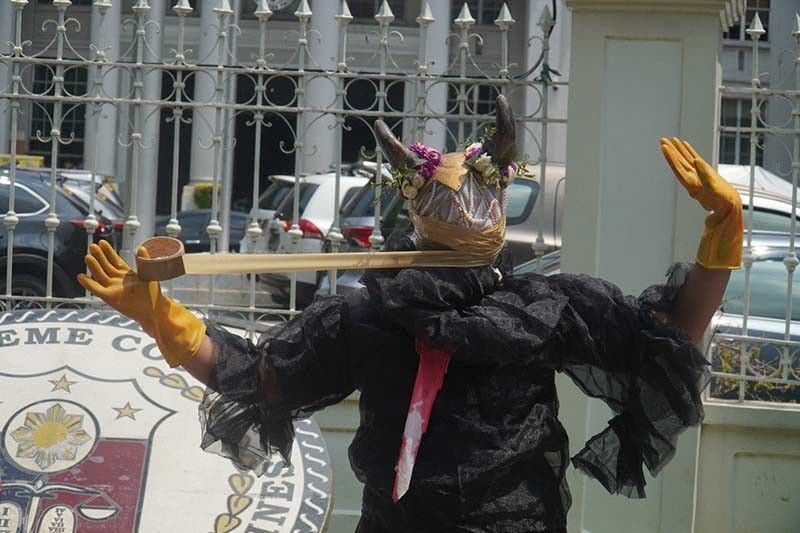Martial law solgen Mendoza urges SC to dismiss petitions vs anti-terrorism law

MANILA, Philippines — Veteran litigator and martial law-era solicitor general Estelito Mendoza asked the Supreme Court to allow him to join the legal fight against the Anti-Terrorism Act of 2020, and as a "friend of court," he urges the dismissal of the petitions.
Mendoza sought the tribunal’s nod to appear as amicus curiae (friend of court) and admit his comment calling for the dismissal of the petitions filed against the Republic Act 11479 or the Anti-Terrorism Act of 2020.
“The petitions do not sufficiently allege, much less show, that the petitioners have committed any act in violation of the Anti-Terrorism Act thereby creating an ‘actual controversy’ involving a legally demandable and enforceable right for the exercise of judicial power under Section 1, second paragraph, of Article VIII of the Constitution,” Mendoza said.
The veteran lawyer specifically rebutted arguments raised in the petition filed by lawyer Howard Calleja—the first—and by retired SC justices Antonio Carpio and Conchita Carpio-Morales, saying these were the only copies he got hold copies of.
The veteran lawyer is backing the government saying that the petitions—or at least two of them—failed to alleged actual controversy that are legally demandable and enforceable in their pleadings and must be dismissed.
He said he is filing the amicus curiae “believing that his experience on issues relevant to the instant cases” may help in the SC in resolving the petitions.
No actual controversy
Mendoza stressed that for the SC to exercise judicial power, there must be actual controversies which are legally demandable and enforceable, and to determine whether there has been grave abuse of discretion on the part of respondents. He that the SC “would be ill-advised” to act on the petitions that do not comply with these Constitutional requirements, just because of the sheer number of the petitions filed or that these raised public interest.
Mendoza also noted that the Carpio petition, which attacked several sections of the law for being “repugnant” to the Constitution, “does not allege the commission of any act described therein by any person represented by the petitioners.” He also said that the petitioners’ argument that “Anti-Terrorism Act is void on its face” must fail because there is no evidence to back this claim or even an allegation of the commission on act.
Mendoza said that when a penal law is assailed, there can be no actual controversy involving legally demandable and enforceable rights without the allegation of, and actual, commission of the crime.
“Nor a determination of whether the enactment of the law or any power conferred therein amounts to a ‘grave abuse of discretion amounting to lack or excess of jurisdiction on the part of any branch or instrumentality of the government’ warranting the exercise of judicial power,” Mendoza continued.
In his petition, Mendoza cited his 14 years of working as a solicitor general during the martial law rule of the late dictator Ferdinand Marcos Sr. where he attended to the more than 500 hearings and filing of return of writs for the petitions for habeas corpus.
He recalled that during this time the SC would require the respondents—person allegedly detaining the petitioner—to file a return of the writ and set a hearing on the case. “The court would not dismiss the petition simply on allegation that what is involved is a political question,” he added.
The lawyer however said that this “does not preclude the institution and consideration by the Court of an action questioning an act allegedly committed against the petitioner, in violation of the Anti-Terrorism Act on the ground that the act is in violation of the Constitution, or a provision thereof ‘as applied.’”
Under the Rules of Court, the court may invited attorneys to appear as amici curiae to help in disposition of issues.
The SC is set to hold oral arguments on the petitions in September.
Mendoza represented Sen. Ramon “Bong” Revilla in his plunder case that was dismissed last year and successfully defended former President Gloria MAcapagal-Arroyo in plunder. He was also the lawyer of former Sen. Juan Ponce Enrile, also a plunder defendant, who was allowed to post bail by the SC.
- Latest
- Trending


































